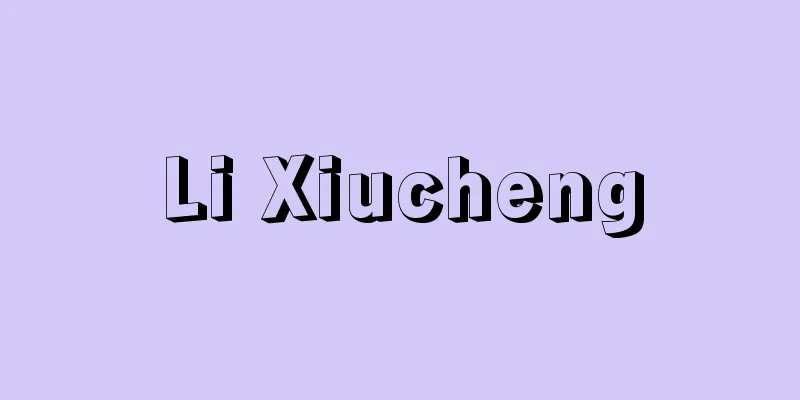Li Xiucheng

|
The supreme military commander of the late Taiping Heavenly Kingdom in China. Born to poor farmers in Fujian County, Guangxi Zhuang Autonomous Region, he started as a private soldier and was made King of Zhong in 1859 due to his successive military achievements. Together with the Ying King Chen Yucheng and others, he supported the Taiping Heavenly Kingdom, which had been weakened by the Great Division of 1856. After 1860, he was mainly involved in occupying and managing the Jiangzhe region, and in 1860 and 1862, he invaded Shanghai, fighting fiercely against the British and French armies, the Ever-Victorious Army, and the Huai Army. He was critical of Heavenly King Hong Xiuquan's religious fanaticism and often clashed with him on strategic matters, but in the end he followed his lead due to his belief in foolish loyalty. The plan to abandon Tianjing (Nanjing) was not implemented, and he took command of the final battle of Tianjing. After the defeat, he escaped with the young Tianwang, but was captured and executed by Zeng Guofan in August 1864. The "Self-Comment" he wrote while in captivity is the most important document in the study of the Taiping Heavenly Kingdom, but Zeng Guofan made significant edits to the part about Tianwang's death from illness before publishing it. Furthermore, the assessment of whether the Self-Comment was a document of surrender or not, combined with the conflict within the Chinese Communist Party, namely the conflict between Mao Zedong and Liu Shaoqi, became one of the sparks of the Cultural Revolution. [Shinji Kojima] [Reference items] | |Source: Shogakukan Encyclopedia Nipponica About Encyclopedia Nipponica Information | Legend |
|
中国、太平天国後期の最高軍事指揮官。現在の広西チワン族自治区藤県の貧農出身で、一兵卒から身をおこし、相次ぐ軍功により1859年忠王に封ぜられた。英王陳玉成らとともに、1856年の大分裂で弱体化した太平天国の屋台骨を支えた。60年以後、おもに江浙(こうせつ)地方の占領と経営にあたり、60年と62年に上海(シャンハイ)に進攻し、英・仏軍、常勝軍、淮(わい)軍と激闘した。天王(洪秀全)の宗教的熱狂に覚めた批判をもち、戦略面でもしばしば対立したが、愚忠の観念から結局はこれに従った。天京(南京(ナンキン))放棄策がいれられず、天京最後の戦いの指揮をとり、敗北後幼天王を擁して脱出したが捕らえられ、64年8月、曽国藩(そうこくはん)に処刑された。虜囚のなかで書いた「自述」は、太平天国研究の最重要文献だが、曽国藩は天王の病死に関する部分などかなり改竄(かいざん)して公刊した。また、この自述が投降の書であるか否かの評価が、中国共産党内の対立つまり毛沢東(もうたくとう)と劉少奇(りゅうしょうき)の対立と絡んで、文化大革命の口火の一つとなった。 [小島晋治] [参照項目] | |出典 小学館 日本大百科全書(ニッポニカ)日本大百科全書(ニッポニカ)について 情報 | 凡例 |
<<: Rishuki Sutra - Rishuki Sutra
>>: Li Ci-ming (English spelling)
Recommend
Stethoscope - stethoscope
Auscultation is a method of examining a patient b...
Japan lily (English spelling) Japan lily
...Seeds are easily obtained through self-pollina...
Parisien, Bassin (English spelling) ParisienBassin
…A large basin in north-central France, centered ...
Issyk kurgan (English spelling)
...This shape was unchanged in Sassanid Persia, a...
Visigothae
...As a result, many of the stadts were tribal gr...
White wax scale
An insect belonging to the order Hemiptera and th...
Color wax - Shikirou (English spelling)
Carotenoids, the pigments that give plants their y...
Gamelan (English spelling)
Indonesia's representative instrumental ensemb...
Juan Martínez Montañés (Montañez)
1568‐1649 Spanish sculptor. Born in Alcalá la Real...
Saint Louis (Name) (English) Saint Louis
…reigned from 1226 to 1270. He was called the &qu...
Umanista - Umanista
…The oldest surviving example of this term dates ...
Nematoda
...Also called nematodes. A general term for inve...
Acute obstructive suppurative cholangitis - acute obstructive suppurative cholangitis
…Intrahepatic stones in the intrahepatic bile duc...
Chakra - Chakra
The energy center of humans. It is also related to...
Nursing intervention
...By meeting the needs of the patient in accorda...









